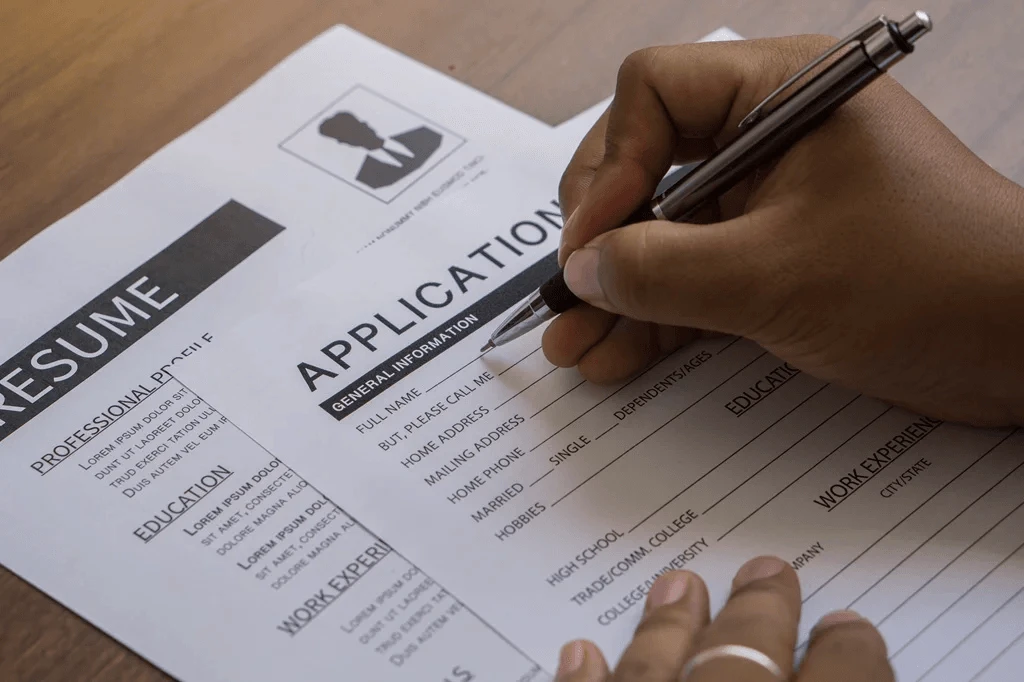Navigating the professional landscape can be confusing, especially when it comes to understanding the nuances of career transitions. Many people use the terms career change and changing careers interchangeably, but they actually represent distinct paths in one’s professional journey.
As career experts, we often encounter clients grappling with these concepts. This blog post will go straight to the point: Career Change vs Changing Careers. We’ll also clarify the differences between a career change and changing careers, helping you make informed decisions about your professional future.
What Is a Career Change?
Defining Career Change
A career change represents a significant shift in one’s professional path. It involves transitioning to a new role that requires a different set of skills, knowledge, and experience from your current position. This shift often means starting from scratch in a new field, which can be both exciting and challenging.
Why People Change Careers
People opt for career changes for various reasons. A survey by Indeed reveals that 49% of employees have made a dramatic career shift. The top reasons include seeking better pay (88%), unhappiness in their previous career (87%), and the desire for more flexibility (84%).
Other common motivations include:
- Pursuing passion projects
- Seeking better work-life balance
- Responding to industry changes or obsolescence
- Addressing burnout or stress
- Aligning work with personal values
Real-World Career Change Examples
To illustrate the scope of career changes, consider these real-life examples:
- Jeff Bezos: From Wall Street to founding Amazon
- Sara Blakely: From door-to-door fax machine sales to creating Spanx
- Arnold Schwarzenegger: From bodybuilding to acting to politics
These examples show that career changes can lead to remarkable success when driven by passion and determination.
Preparing for a Career Change
When considering a career change, it’s essential to:
- Research your target industry thoroughly
- Identify transferable skills
- Network with professionals in your desired field
- Gain relevant experience through volunteering or part-time work
- Update your resume and LinkedIn profile to reflect your new career goals
A well-crafted resume is crucial when making a career change. It should emphasize your transferable skills and demonstrate how your unique background can benefit your new field. Professional resume writing services specialize in creating resumes that effectively communicate your value to potential employers, even when transitioning to a new industry.
As we explore the concept of career change, it’s important to distinguish it from the related but distinct idea of changing careers. Let’s examine this concept in more detail in the next section.

What Does Changing Careers Mean?
Defining Career Changes
Changing careers represents a subtle shift within your professional journey. It typically involves a move to a different role or industry that still utilizes your existing skills and experience. This transition often feels like a natural progression rather than a complete overhaul of your professional identity.
The Nuances of Career Changes
Professionals who change careers usually stay within their broader field or move to an adjacent industry. For example:
- A marketing manager might transition to a sales director role, leveraging their communication and strategic planning skills in a new context.
- A teacher might become an educational consultant, using their classroom experience to advise schools on curriculum development.
A LinkedIn study reveals that 49% of professionals have made a dramatic career shift at some point. However, many of these shifts fall under the category of changing careers rather than a complete career change. This trend highlights the importance of adaptability in today’s job market.
Motivations for Career Changes
The reasons for changing careers often differ from those driving a complete career change. A University of Phoenix survey revealed that 59% of working adults are interested in changing careers, with the top motivations being:
- Better compensation (73%)
- Interest in a different field (42%)
- Less stress in current field (41%)
Other common reasons include seeking more growth opportunities, desiring a better work-life balance, or responding to industry trends.
Practical Steps for Career Changes
If you consider changing careers, here are some actionable steps:
- Conduct informational interviews with professionals in your target role
- Take on new responsibilities in your current job that align with your desired career path
- Pursue relevant certifications or training to bridge any skill gaps
- Update your resume to highlight transferable skills relevant to your new career direction
Professional resume writing services (such as Resume Professional Writers) can help craft resumes that showcase your adaptability and highlight how your existing skills translate to new roles. Expert writers can help you position yourself effectively for a career change, increasing your chances of landing interviews in your desired field.
Changing careers is a strategic move that builds on your existing professional foundation. It’s about evolving your career path rather than completely reinventing it. With the right approach and support, you can successfully navigate this transition and open up new opportunities for professional growth. Now that we’ve explored the concept of changing careers, let’s examine the key differences between a career change and changing careers in the next section.

Career Change vs Changing Careers: What Sets Them Apart?
1. Depth of Transformation
A career change involves a complete overhaul of your professional identity. It often requires you to start from scratch in a new field, learn new skills, and adapt to an entirely different work environment. For instance, a software engineer who transitions to become a psychologist needs to pursue extensive education and training in psychology, essentially building a new career from the ground up.
In contrast, changing careers typically involves a less drastic shift. It often means you move to a related field or role where your existing skills and experience remain relevant. A marketing manager who becomes a sales director, for example, leverages many of their existing skills in communication and strategy, making the transition smoother.
2. Education and Retraining Requirements
The education and retraining needs for a career change are usually more extensive. A survey by the University of Phoenix found that 43% of adults who changed careers had to go back to school. This often involves pursuing a new degree or certification, which can be time-consuming and costly.
Changing careers, on the other hand, may require some additional training or certifications, but typically not a complete educational overhaul. For instance, a project manager in the tech industry who moves to healthcare might need to learn industry-specific terminology and regulations but can still apply their core project management skills.
3. Professional Network Impact
A career change often means you build a new professional network from scratch. This can be challenging, as you may not have established connections in your new field. A study by LinkedIn found that 85% of all jobs are filled via networking, highlighting the importance of building new relationships when changing careers.
When changing careers, you’re more likely to leverage your existing network. Your contacts may know professionals in your target field or even provide referrals. This can significantly ease the transition and open up opportunities more quickly.
4. Financial Considerations
The financial implications of a career change can be significant. According to a survey by Indeed, 65% of career changers reported taking a pay cut initially. This financial setback is often temporary but can last several years as you build experience in your new field.
Changing careers typically has less dramatic financial implications. While there may be some adjustment in salary (especially if moving to a different industry), the impact is usually less severe. In some cases, changing careers can even lead to immediate financial benefits if moving to a higher-paying role or industry.
5. Resume Adaptation
When making a career change, you need to completely overhaul your resume. You must highlight transferable skills and explain how your past experiences apply to your new field. This often requires a strategic approach to showcase your value to potential employers who might not immediately see the connection between your past and desired roles.
For changing careers, resume adaptation is less drastic. You can often use your existing resume as a foundation, making targeted adjustments to emphasize skills and experiences most relevant to your new career direction. This process is typically more straightforward, as there’s often a clearer connection between your past roles and your new career path.

Embracing the Journey and Charting Your Path Forward
A career change involves a complete transformation of your professional identity, often requiring extensive retraining and the rebuilding of your network from scratch. While this bold move can lead to exciting new opportunities, it also comes with higher risks and potential financial setbacks.
In contrast, changing careers represents a more subtle shift, where you leverage your existing skills and experiences to move into related roles or industries. This path typically demands less retraining and allows for smoother network transitions, often resulting in easier financial adjustments.
Regardless of the approach, navigating a career change requires careful planning and self-assessment. It’s essential to evaluate your motivations, skills, and the job market to identify the best growth opportunities. Seeking mentorship can also provide valuable insights into your new field, helping you transition strategically. Ultimately, your success hinges on your adaptability and willingness to embrace challenges while maintaining a clear vision for your future.
Make Your Career Move with Resume Professional Writers
Navigating the professional landscape, whether through a complete career change or a strategic shift, requires clarity and preparation. Understanding the differences between a career change and changing careers empowers you to make informed decisions that align with your goals.
At Resume Professional Writers, we specialize in crafting job-winning resumes that effectively communicate your unique skills and experiences. Whether you’re starting fresh or advancing within your field, our professional resume writing services will help you stand out in a competitive job market. Let us partner with you to elevate your career journey!








